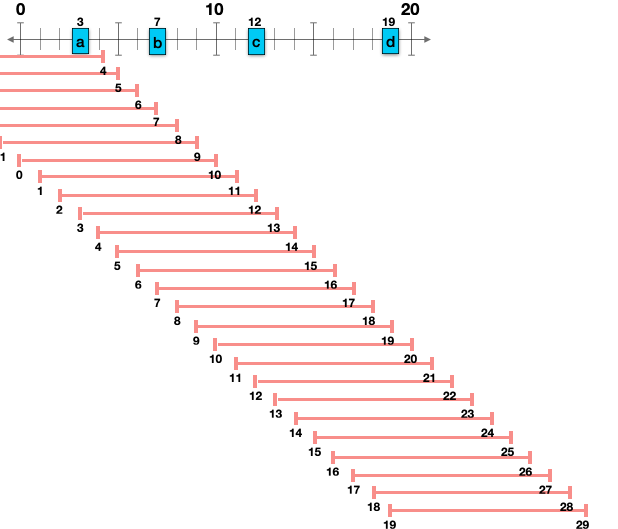| Table of Contents |
|---|
Status
Current state: Under DiscussionAccepted
Discussion thread: here
Vote Thread: here
JIRA: KAFKA-5636
Please keep the discussion on the mailing list rather than commenting on the wiki (wiki discussions get unwieldy fast).
...
Figure 2: Windows with HoppingWindow with a 1ms advance: time difference 10ms, 10 26 windows for 4 records.
Usage
Typical Use
...
Records that come out of order will be processed the same way as in-order records, as long as they fall within the grace period. Two new windows will be created by the late out-of-order record, one ending at that record's timestamp, and one starting at 1ms past that record's timestamp. These windows will be updated with existing records that fall into them by using aggregations previously calculated. If either of these windows are empty, or empty aside from the current record's value, this will be taken into account. Additionally, any existing windows that the new record falls within will be updated with a new aggregation that includes this late out-of-order record.
Emitting Results
As with hopping windows, sliding windows will emit partial results as windows are updated, so any window that gets a new aggregate or an updated aggregate will emit. This feature can be suppressed through suppression, which allows users to ignore all results except for the final one, only emitting after the grace period has passed. In the future, suppress can be updated to emit results for windows that are still within the grace period but whose start and end points are both earlier than stream time.
...

